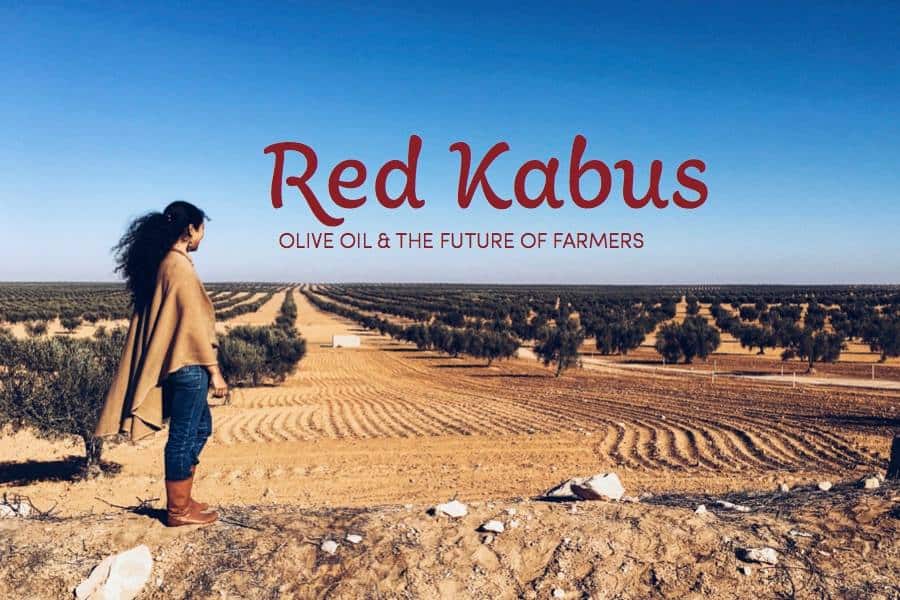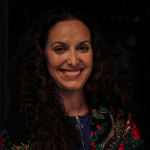Hackathon
Submission
Soraya Hosni
Red Kabus: The New Trade Routes
Our current trade routes are not built for the benefit of farmers, small scale distributors, or the consumer. Our concept is to build and optimize a better trade route, connected via our global relationships that can serve farmers and end-users, and ignite a new food supply chain. Our business has focused on olive oil but plans on expanding to other products.

Project
Proposal
We believe that local, short, direct and traceable commerce can offer a viable solution to disrupt the food industry. Red Kabus is commerce driven by a network of values driven food partners.
We have prototyped this business idea by creating a network of farmers that we educated to produce a higher grade olive oil while keeping the price point buyers are used just because our trade route is direct.
In 2019 we prototyped our solution, finalized the logistics, built a solid team of experts in the field and have are ready for orders. Our first sales were 120 000 tonnes generating over 300k in revenue. We were able to secure more income for the farmers while providing a highest grade olive oil.
Today we believe that reinforcing our direct trade routes will continue to bring more to farmers while certifying a quality product for the consumer.
We are also innovating the sales process by creating a biding platform for buyers to purchase their product with the option of requesting a consultation with industry experts to describe the product for them.
Team
Members
Already registered before? Login first to Apply!
Register now & submit your request to join this team!
Join Soraya Hosni's Team!
Solution
Details
What region(s) or state(s) do you currently have operations in?
California, with partners in North Africa.
Is there a specific region or state where you plan to focus on for this project?
USA
How far developed is your proposal?
Ready, has been tested, can be deployed within a few weeks.
Is there any legal protection for the solution?
Yes
Latest
Submissions
Humanner – Collective Holistic Social Innovation Ecosystem Management
By Janos Deak
By the Humanner Cooperative Social Business Ecosystem model give financial self-sustainability and emerge the digital infrastructure to connect informal market, unlock the power at the bottom of pyramid, and deliver economic prosperity.
“A charity money has only one life. A Social Business money can be invested over and over again.” (Muhammad Yunnus)
Linking science and technologies to communities of our global society. Humanner’s social R&D focus on interweaving new models so smoothly and seamlessly into the currently prevailing system, that it will not be perceived as opposition, but rather as a higher quality competitive model, which gradually replaces the old one.
Our method is to create a high-quality example while showcasing our understanding of what it means to be human.
Humanner’s system work with a MULTI FUNCTIONAL holistic multisolving approach so that make the investment more impactful. Single investment of time and money – Defined as a way of solving multiple problems with the multisolving approach brings together stakeholders from different sectors and disciplines to tackle public issues in a cost-efficient manner
Humanner unite the two biggest volunteer sectors the Open Source and the Non Profit sector into a Social Business Innovation Ecosystem. We aim to explore how open source software, open source hardware, digital maker practices and open design can be effectively used by local communities to fabricate their own tools, make sense of their environments and address pressing environmental problems.
ProducePathway
By Sindhu Sundar
Policy proposal for collaborative food distribution networks utilizing existing nationally-accessible tools and organizations, and partnerships between community centers, hospitals, farmers, and distributors. Objectives are the identification of in-need communities to provide mobile markets and CSA boxes, as well as subsidization strategies to serve low-income areas.
Digital Surplus Management System
By Kubra Orak
Supported by UNDP to reach SDGs, Whole Surplus provides technology solutions to create value out of unsold inventory.[bc1] Placing technology at the heart of a crucial issue as food waste, Whole Surplus offers holistic and digital solutions to any type of surplus food, that is eligible for human consumption, animal feeding, recycling or landfilling and matches them with the right partner who offers the highest financial and social value. Moreover, the platform provides a data analytics dashboard to reduce waste at the source. With the help of the technology and network that is created, the aim is to reduce partners’ food waste-related carbon emission by 50% and to reach the zero-landfill goal.




